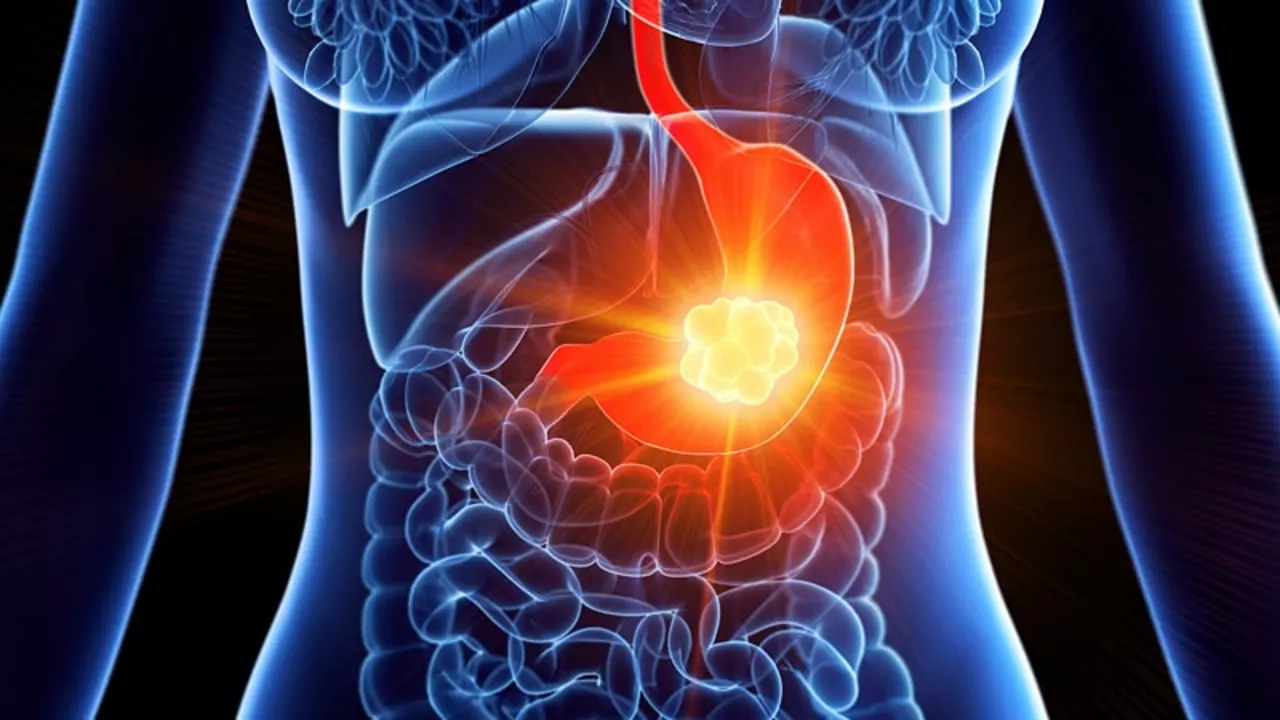Understanding Functional Dyspepsia and Caffeine
Functional dyspepsia, also known as non-ulcer dyspepsia or indigestion, is a common gastrointestinal disorder that affects a large number of people worldwide. It is characterized by persistent or recurrent pain in the upper abdomen, bloating, nausea, and a feeling of fullness even after eating a small amount of food. In this article, we will explore the impact of caffeine on functional dyspepsia and discuss the possible mechanisms through which caffeine may exacerbate or alleviate the symptoms of this condition.
The Role of Caffeine in Daily Life
Caffeine is a well-known central nervous system stimulant that is widely consumed in the form of coffee, tea, soft drinks, and energy drinks. It is also found in various medications, dietary supplements, and food products. The stimulating effect of caffeine is primarily due to its ability to block adenosine receptors in the brain, thereby enhancing alertness, concentration, and wakefulness.
While caffeine is generally considered safe when consumed in moderation, excessive intake can lead to various side effects, including insomnia, jitteriness, increased heart rate, and gastrointestinal disturbances. It is important to understand the potential impact of caffeine on functional dyspepsia to make informed decisions about caffeine consumption.
Caffeine and Gastric Acid Secretion
One of the proposed mechanisms through which caffeine may affect functional dyspepsia is by stimulating gastric acid secretion. Gastric acid plays a crucial role in the digestion of food and the absorption of nutrients. However, excessive or prolonged secretion of gastric acid can lead to irritation and damage of the gastric mucosa, which may contribute to the development or worsening of dyspeptic symptoms.
Studies have shown that caffeine can stimulate the secretion of gastric acid by increasing the production of gastrin, a hormone that promotes gastric acid secretion. This effect is particularly pronounced in individuals with a genetic predisposition to increased gastrin production or a history of gastrointestinal disorders.
Caffeine and Gastrointestinal Motility
Gastrointestinal motility refers to the coordinated contractions of the muscles in the gastrointestinal tract, which propel food through the digestive system. Abnormalities in gastrointestinal motility have been implicated in the pathophysiology of functional dyspepsia, with delayed gastric emptying and impaired gastric accommodation being the most common motility disorders observed in these patients.
Caffeine is known to increase gastrointestinal motility by stimulating the release of certain neurotransmitters, such as acetylcholine, which promote smooth muscle contractions. However, the effects of caffeine on gastrointestinal motility are complex and can vary depending on factors such as dosage, individual sensitivity, and the presence of other substances that may modulate the effect of caffeine.
Impact of Caffeine on Functional Dyspepsia Symptoms
Despite the potential effects of caffeine on gastric acid secretion and gastrointestinal motility, the relationship between caffeine consumption and functional dyspepsia remains unclear. Some studies have suggested that caffeine may exacerbate dyspeptic symptoms, particularly in individuals who are sensitive to the effects of caffeine or have a history of gastrointestinal disorders.
However, other studies have found no association between caffeine consumption and functional dyspepsia, and some even suggest that moderate caffeine intake may have a protective effect against the development of dyspeptic symptoms. The discrepancy in these findings may be due to differences in study populations, methodologies, and definitions of functional dyspepsia.
Individual Variability in Response to Caffeine
It is important to recognize that the impact of caffeine on functional dyspepsia may vary considerably between individuals. Factors such as genetic predisposition, personal sensitivity to caffeine, and the presence of other gastrointestinal disorders may influence the response to caffeine and the development or worsening of dyspeptic symptoms.
For this reason, individuals with functional dyspepsia should carefully monitor their response to caffeine and adjust their consumption accordingly. Some people may find that reducing or eliminating caffeine from their diet helps to alleviate their symptoms, while others may be able to tolerate moderate amounts of caffeine without experiencing any adverse effects.
Managing Caffeine Consumption for Dyspepsia Relief
Given the uncertainty surrounding the relationship between caffeine and functional dyspepsia, it is important for individuals with this condition to adopt a personalized approach to caffeine consumption. This may involve gradually reducing caffeine intake to determine the level at which symptoms are alleviated or eliminated.
For some people, switching to decaffeinated coffee or tea, or consuming smaller amounts of caffeine throughout the day, may help to minimize the impact of caffeine on dyspeptic symptoms. Additionally, certain lifestyle modifications, such as eating smaller, more frequent meals, avoiding trigger foods, and managing stress, can also play a crucial role in the management of functional dyspepsia.


Now I drink chamomile tea instead. No jitters, no bloating. Life's better.
Don't blame the bean. Look at your whole plate. 🤓
And don't get me started on how 'moderate' is defined by people who drink 5 espressos a day. That's not moderate. That's self-medication.
Also, the definition of 'functional dyspepsia' varies so wildly between studies that comparing them is like comparing apples to Mars rovers. This entire field needs a complete overhaul.